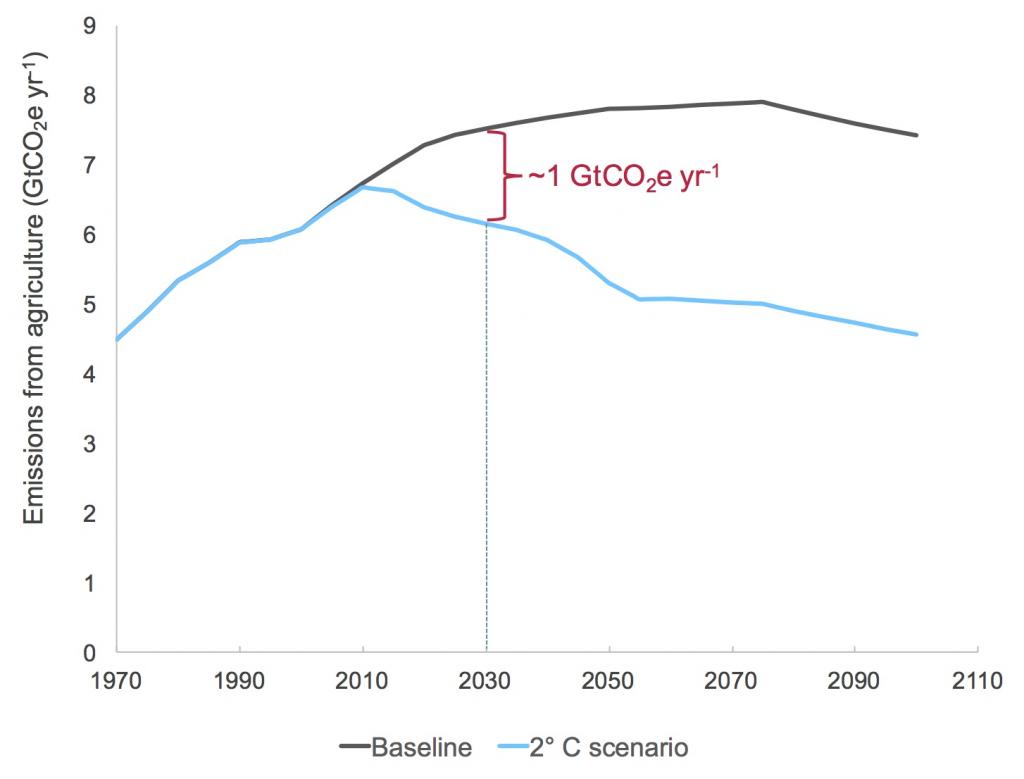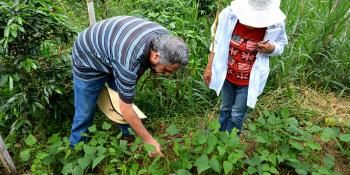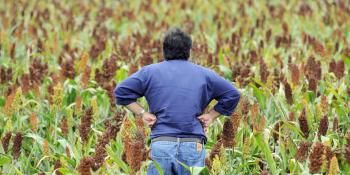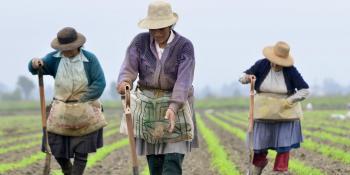Korea and the Netherlands discuss climate-smart approaches at 2nd Regional Conference on Food Security in Seoul

An international collaboration between governments and researchers can help us reach the targets in the UNFCCC Paris Agreement.
The agriculture sector is facing serious challenges. Farmers have to produce more food on less land for growing populations, under a changing climate and with the need to reduce greenhouse gas emissions to meet the target of keeping temperature increase below 2°C. Reducing greenhouse gas emissions from the agriculture sector can be challenging in regions like South Asia where the sector is an important contributor to the economy.
The need for a transformation
A transformation is required within the next decade in the way agricultural systems and broader food systems function
As part of the UNFCCC Paris Climate Agreement’s objective of limiting global warming to 2°C, annual emissions reductions from agriculture must reach 1 gigatonne of carbon dioxide equivalents (GtCO2e/yr) by 2030. Meeting this goal means we have to reach the world’s half a billion farmers by 2030 with new knowledge, finance, and capacity building to transform livelihoods. Yet already known options to do this only deliver 21–40% of this target. A transformation is required within the next decade in the way agricultural systems and broader food systems function. Such a transformation can only be achieved by international cooperation on advanced technologies, climate-smart agriculture (CSA), capacity enhancement, and learning.

Source: Reducing emissions from agriculture to meet the 2°C target.
The Sustainable Development Goals (SDGs) were introduced to shift towards a world of peace and prosperity for people now and in the future. The SDGs also address the challenge of declining land and growing populations and has an aim to end hunger, achieve food security, improve nutrition and promote sustainable agriculture. In today’s world 815 million people suffer from hunger and starvation. In Asia, an improvement has already been achieved, moving closer towards relief from hunger. However, with the rise of the threat of climate change, food security has been negatively impacted. In order to overcome related challenges, international cooperation in sustainable agricultural development is crucial, and can be achieved by revitalizing global partnerships.
The agenda of the 2nd Regional Conference on Food Security
To move closer to achieving the SDGs, the 2nd Regional Conference on Food Security in Seoul, South Korea was organized in cooperation with the South Korean Ministry of Agriculture, Food and Rural Affairs (MAFRA), Center for International Agricultural Partnership, the Official Development Assistance (ODA) and the Dutch Ministry of Agriculture, Nature and Food Quality to reflect on sustainable agriculture and innovations in agriculture, agricultural development, CSA and technology. The purpose was to bring stakeholders together to share ideas and strategies and to have discussions on approaches to strengthen food security.
The Dutch researcher Dr. Jan Verhagen of Wageningen University & Research (WUR) and Korean researcher Dr. Youngah Lim from the Korean Rural Economic Institute (KREI) gave suggestions for collaboration, stressing the importance of focusing on CSA as a solution to decreasing food security—and approach that is a counter-measurement to climate change, and fosters sustainable development.
Part of the agenda was to direct attention to the adaptation of agricultural practices to mitigate the negative impacts of climate change. Both speakers agreed that the focus needs to be on primary production, which implies using a bottom-up approach to tackle the issue. One key action needed is increasing the productivity of farmers by improving their practices in e.g. water management. Together, the countries are aiming at international collaboration in climate-smart practices through research in joint technologies, policies and capacity building and other methods needed to increase food security.
International cooperation allows for combined expertise
The fruits of Korean-Dutch partnership can be seen in the construction of an autonomous orchard robot, created for regular activities such as weeding, spraying, and trimming in orchards. The Rural Development Administration (RDA) developed a multifunctional robot platform, and WUR contributed with autonomous navigation algorithms that facilitate detection of obstacles and the execution of tasks.
Similar collaborative approaches could be used to improve agriculture on a global scale
Such collaboration is not only successful on a small scale, however. Similar collaborative approaches could be used to improve agriculture on a global scale as well as increase our chances of achieving the SDGs. Combined expertise can be used to implement climate-smart approaches in countries like Ethiopia, Uganda, Kenya, Ghana and Bangladesh, which are highly affected by climate change.
One example of climate-smart practices comes from a project in Indonesia on small peri-urban dairy farms in West Java led by WUR and supported by the Dutch Ministry of Agriculture, Nature and Food Quality. The project aims to find opportunities to reduce greenhouse gas emissions in collaboration with farmers. In this region, the high human and livestock density, coupled with scarce land resources, pose a serious challenge. Through the project, productivity and production are boosted by improving feed and manure management, benefitting farmers while reducing greenhouse gas emissions.
What follows ...
Last week, COP24 concluded in Poland. Though agriculture was discussed as part of the Koronivia Joint Work on Agriculture in a workshop on Monday, 3 December, we should not expect the UNFCCC to deliver action on the ground. That is up to countries, farmers, consumers, researchers, international organizations, etc. CCAFS and partners have taken up this challenge, and aim to show how we can bring about the much-needed transformation of global food systems at the Climate-Smart Agriculture Science Conference in Bali, Indonesia, 8-10 October 2019.
Read more:
- Journal article: Reducing emissions from agriculture to meet the 2°C target
Lucie Wassink is Policy Coordinator for International agribusiness at the Dutch Ministry of Agriculture, Nature and Food Quality. Anette Engelund Friis is Head of Partnerships and Outreach for CCAFS.



